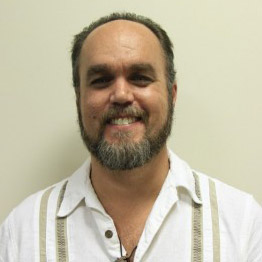 One of the questions I have pondered since my release from prison is when and where to share my past with people in my life, both personally and at work. Sometimes it is an easy decision. When I started writing for JJIE it was hoped that my point of view, based on my experiences, would offer a voice not usually heard in discussions about justice.
One of the questions I have pondered since my release from prison is when and where to share my past with people in my life, both personally and at work. Sometimes it is an easy decision. When I started writing for JJIE it was hoped that my point of view, based on my experiences, would offer a voice not usually heard in discussions about justice.
This week I was working in a diversion center, talking to some of the residents about communications skills. One of the guys commented that I needed to work with the staff, since the inmates had little conflict or trouble with one another. I told them about my own study of communication, and how in part it was born out of finding more effective ways to talk to people as a way of increasing my own power in a mostly powerless situation. Here again, my past lent me a degree of credibility with my audience.
In my personal life I have chosen to share when it seemed relevant to my connection with the person I was with. I neither hide my past nor trumpet it for effect. This has not always been an easy call though. Sometimes people feel that I “owe” it to others to tell them the truth. Sometimes others want me to hide my past, usually out of concern for how I will be accepted.
Like most adults, I imagine, I don’t want to be seen only for the mistakes I made in youth. I would rather be evaluated for who I am and what I am doing today. At the same time, I am aware that my mistakes have been vastly more serious than those of most people. My path has been to find a use for my past, to take my mistakes and experiences and turn them into something that helps me make the world a little bit better place.
This was forcefully brought home to me a couple of weeks before Christmas. I was in a classroom with a few high school students. All of them are African American. We had been working together for a few months on communication and conflict resolution skills. My own past had never come up. Partly this was an attempt to keep the focus on their lives. I thought my story might prove too distracting. Since our time together was ending though, I decided to take a chance.
With some trepidation, I told them that one of the biggest reasons I was drawn to working with them was my own history of terrible decision making. I know how easy it is for kids to get off track, and that a little bit of help can go a long way. They were a little surprised, but immediately began to share.
“My daddy was in prison.”
“My brother is in prison now.”
“My uncle just got out last year.”
All of them knew someone close to them who had been incarcerated. In one case both of the child’s parents had been incarcerated. This was markedly different than my own middle class upbringing. I never even knew anyone who had been in jail, much less prison.
The world of these kids is grimmer. “Collateral Costs,” a 2010 report by the Pew Charitable Trusts, finds that almost 3 million kids in the United States have an incarcerated parent. As usual, African Americans are disproportionately represented. This is staggering to consider, especially since many kids who end up involved in juvenile court are following in their parents’ footsteps. In their world, especially for the boys, the chances of getting locked up are high.
No doubt, my own difficulties in navigating this maze will continue, as I seek to balance so many different considerations. This was one case where I was overly concerned, though. It seems that sharing with them was a good choice, and next time I won’t be so worried about the effects.































